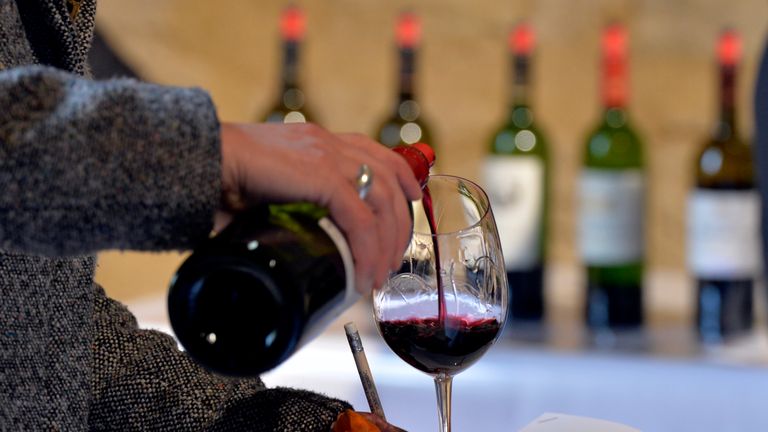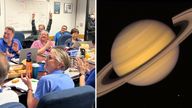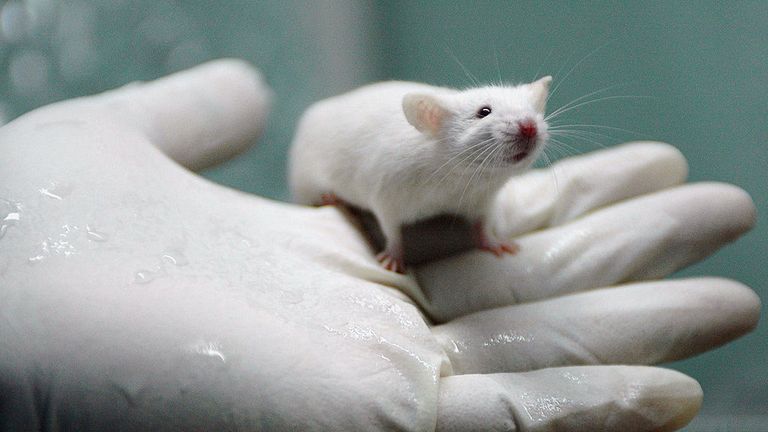Chemical in red wine could protect astronauts flying to Mars
A NASA-funded study finds that a bit of plonk could do astronauts a world of good as they travel to Mars.
Friday 19 July 2019 13:01, UK
A chemical in red wine known as resveratrol could prevent astronauts' muscles becoming weak in the reduced gravity environment on Mars, a new study as found.
Resveratrol is a naturally-occurring chemical found in the skins of grapes and blueberries, and was the focus of the scientific study at the Beth Israel Deaconess Center at Harvard University.
The researchers found that resveratrol could preserve muscle function and mitigate muscular atrophy under conditions that mimic the gravity of Mars.
Because Mars has only about 40% of Earth's gravity, astronauts who spend a long time on the red planet could find their muscles shrinking due to being used less than normal.
Muscle atrophy is an almost immediate consequence of spaceflight, with studies of crews over the past 50 years finding that astronauts can lose up to 20% of their muscle mass in less than two weeks in microgravity.
In order to prevent this, the astronauts living and working aboard the International Space Station (ISS) have to exercise for several hours every day.
Even then many of them return to Earth weakened from their journey and need to undergo months of rehabilitation.
This will not necessarily be possible for the first humans arriving on Mars, and so the scientists - sponsored by NASA -analysed whether a dietary supplement could help protect their muscle mass.
The team replicated a technique used to test Martian gravity in rats and mice, according to their work published in Frontiers in Physiology.
"In the past, mimicking lower gravity had been achieved by tail suspension," said its designer Dr Marie Mortreux.
"Although effective, this approach presents a variety of challenges, including impaired blood flow and spinal misalignment.
"To avoid these issues and to help keep the animals horizontal and presumably more comfortable, we incorporated a custom-fit suspension harness," explained Dr Mortreux.
Two dozen male animals were tested, half living under normal gravity conditions, and half in Martian gravity conditions.
Half of the animals in these groups received resveratrol while half did not.
Although all of the animals living in the Martian gravity simulation did lose muscle mass within two weeks, the ones on resveratrol maintained front and hind limb grip force - something that normally rapidly declines.
Additionally, resveratrol supplements led to a significant increase in muscle weight, myofiber (or muscle cell) size, and a protection of muscle composition, the researchers found.
"After five decades of manned low earth orbit missions, scientists have a relatively good understanding of the effects of microgravity on the human body, but the consequences of partial gravity remain far less well understood," said Dr Mortreux.
"This study emphasises that natural compounds could be key to maintaining human health as we journey to the moon and to the red planet."





